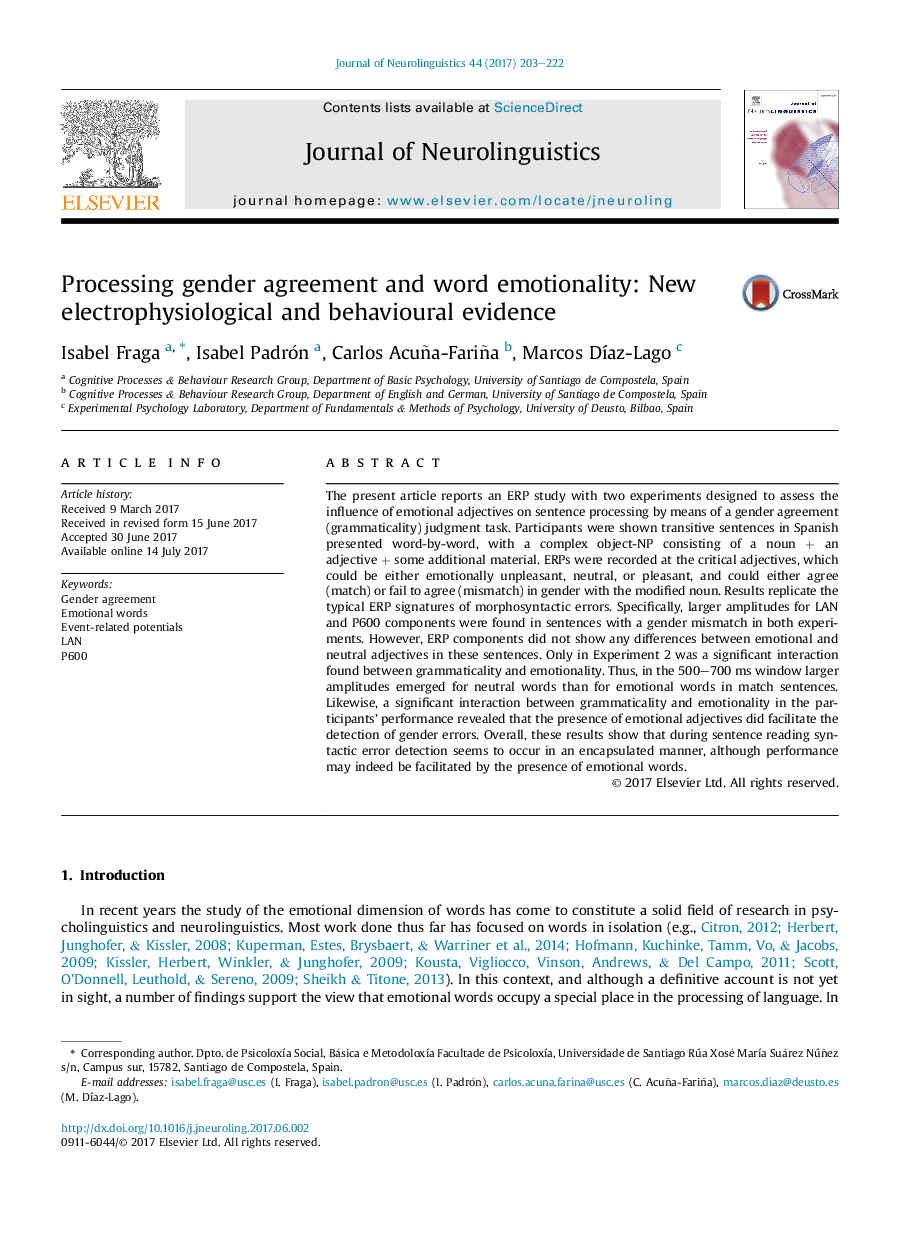| Article ID | Journal | Published Year | Pages | File Type |
|---|---|---|---|---|
| 5039257 | Journal of Neurolinguistics | 2017 | 20 Pages |
â¢Gender errors evoked larger amplitudes for the LAN and the P600 components.â¢The processing of grammar errors was not affected by word emotionality.â¢During sentence reading syntactic error detection seems to be encapsulated.â¢The presence of emotional adjectives did facilitate performance.
The present article reports an ERP study with two experiments designed to assess the influence of emotional adjectives on sentence processing by means of a gender agreement (grammaticality) judgment task. Participants were shown transitive sentences in Spanish presented word-by-word, with a complex object-NP consisting of a noun + an adjective + some additional material. ERPs were recorded at the critical adjectives, which could be either emotionally unpleasant, neutral, or pleasant, and could either agree (match) or fail to agree (mismatch) in gender with the modified noun. Results replicate the typical ERP signatures of morphosyntactic errors. Specifically, larger amplitudes for LAN and P600 components were found in sentences with a gender mismatch in both experiments. However, ERP components did not show any differences between emotional and neutral adjectives in these sentences. Only in Experiment 2 was a significant interaction found between grammaticality and emotionality. Thus, in the 500-700 ms window larger amplitudes emerged for neutral words than for emotional words in match sentences. Likewise, a significant interaction between grammaticality and emotionality in the participants' performance revealed that the presence of emotional adjectives did facilitate the detection of gender errors. Overall, these results show that during sentence reading syntactic error detection seems to occur in an encapsulated manner, although performance may indeed be facilitated by the presence of emotional words.
